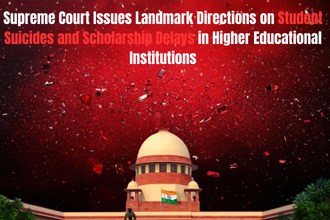Introduction
The Kerala High Court has recently delivered a significant verdict in the infamous Udayakumar custodial death case. On August 27, 2025, a Division Bench comprising Justices Raja Vijayaraghavan V and KV Jayakumar acquitted two police officers, K. Jithakumar and S.V. Sreekumar, who were earlier awarded the death penalty by a CBI Court in 2018. The Court also set aside the conviction and three-year imprisonment imposed on three other police officers, T.K. Haridas, T. Ajith Kumar, and E.K. Sabu, thereby overturning the earlier ruling in its entirety.
The case, which revolved around the brutal custodial torture and death of 26-year-old Udayakumar in 2005, has long stood as a reminder of the perils of custodial violence and the complexities of the justice delivery system. This judgment has reopened discussions on issues like custodial torture, accountability of police officials, standards of proof in criminal trials, and the human rights framework governing law enforcement in India.
Background of the Case
In September 2005, Udayakumar and another individual were apprehended from a public park in Thiruvananthapuram by police officers on suspicion of possessing stolen money. The police recovered ₹4,000 from them, which they alleged was stolen property.
According to the prosecution, Udayakumar was taken to the Fort Police Station, where he was subjected to brutal torture by officers Jithakumar and Sreekumar. He allegedly sustained over 40 injuries, primarily on his thighs and lower abdomen, which ultimately led to his death.
The incident led to a massive public outcry. Udayakumar’s mother, dissatisfied with the State police’s handling of the case, approached the Kerala High Court, alleging deliberate delay and bias in the investigation. Consequently, the case was transferred to the Central Bureau of Investigation (CBI) in 2008.
The CBI Court Conviction (2018)
After years of trial, the CBI Special Court in Thiruvananthapuram convicted five police officers in 2018. The court found Jithakumar and Sreekumar guilty of murder, awarding them the death penalty—one of the rarest punishments for custodial death cases in India.
The other three officers—Haridas, Ajith Kumar, and Sabu—were convicted of conspiracy and destruction of evidence, receiving three-year prison sentences. The conviction was hailed as a landmark at the time, as it was viewed as a stern warning against custodial violence.
However, all five officers challenged the judgment before the Kerala High Court, leading to the recent acquittal.
Kerala High Court’s Acquittal (2025)
On August 27, 2025, the Kerala High Court delivered its verdict in State of Kerala v. Jithakumar K and connected cases. The Court acquitted all five officers, setting aside both the death sentences and the lesser punishments imposed by the CBI Court.
While detailed reasoning will be available in the full text of the judgment, the acquittal suggests that the High Court was not convinced about the sufficiency of evidence linking the officers directly to Udayakumar’s custodial death.
Notably, Sreekumar, one of the officers sentenced to death, had already passed away during the pendency of the appeal, and his case was abated.
Key Legal Issues
- Evidentiary Standards in Custodial Death Cases
- Custodial death cases often rely on circumstantial evidence, medical reports, and testimonies of fellow detainees or witnesses.
- The High Court’s decision indicates possible shortcomings in the prosecution’s ability to establish guilt beyond reasonable doubt.
- Custodial Violence and Human Rights
- The case highlights the persistent issue of custodial torture in India. The post-mortem report revealing 40 injuries stands as a chilling reminder of the brutality that detainees often face.
- Delay in Investigation
- The initial delay in investigation by the State police, and subsequent transfer to the CBI in 2008, raised concerns about the credibility of evidence and the ability of the justice system to deliver timely justice.
- Death Penalty in Custodial Cases
- The CBI Court’s decision to impose the death penalty was rare and controversial. The High Court’s reversal reopens the debate on whether custodial violence cases should attract capital punishment, or whether life imprisonment and stricter reforms are more appropriate.
Broader Implications
1. Custodial Deaths in India
According to the National Human Rights Commission (NHRC), hundreds of custodial deaths are reported annually, but very few result in convictions. This acquittal underscores the difficulty of securing justice in such cases due to lack of direct evidence, systemic cover-ups, and institutional bias.
2. Public Trust in Judiciary and Police
The acquittal may erode public trust in the judicial system, especially for victims’ families who wait years for justice. At the same time, it raises questions about the accountability of investigative agencies and the need for police reforms.
3. Role of the CBI vs State Police
The transfer of the case to the CBI was initially seen as a move towards impartiality. However, the acquittal after nearly two decades suggests that investigative lapses—whether by the State police or the CBI—can weaken even high-profile cases.
4. Need for Legislative Reforms
This case reignites calls for India to ratify the UN Convention Against Torture (UNCAT) and enact a comprehensive anti-torture law. While the Constitution protects against cruel and degrading treatment under Article 21, the absence of a dedicated statute makes prosecution in custodial cases more challenging.
Conclusion
The Kerala High Court’s acquittal of police officers in the Udayakumar custodial death case marks a turning point in the long legal battle spanning two decades. While the judgment provides relief to the convicted officers, it raises pressing questions about custodial torture, evidentiary standards, and the functioning of the criminal justice system.
For Udayakumar’s family, the verdict is a major setback in their pursuit of justice. For society at large, it is a reminder that custodial violence remains a grim reality in India—one that requires urgent reforms, stronger accountability mechanisms, and unwavering judicial scrutiny.
Until such systemic changes are implemented, cases like Udayakumar’s will continue to highlight the fragile balance between policing powers and protection of human rights.
Also Read
Supreme Court Flags Delay in Reserved Judgments: High Courts Directed to File Monthly Reports


